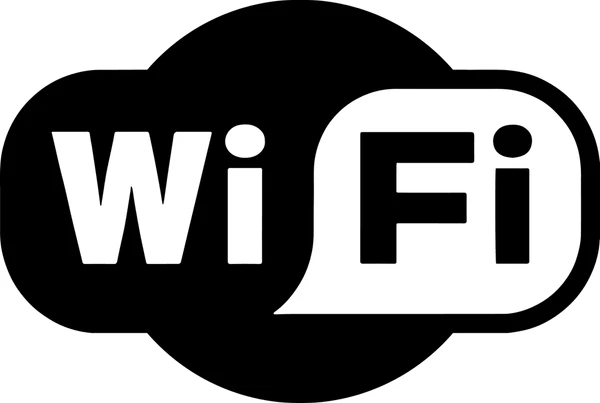
Introduction: WiFi vs Internet – What’s the Difference?
When it comes to connectivity, WiFi vs Internet highlights two essential but distinct technologies. WiFi provides a local wireless network for device communication, while the Internet connects you to the global web. Understanding their differences can help you optimize your network and troubleshoot common issues.

What Is WiFi?
WiFi, based on the IEEE 802.11 family of standards, is a wireless networking technology commonly used for local area networking of electronic devices and Internet access. It enables devices like smartphones, tablets, laptops, and desktops to connect to a wireless access point or hotspot, which is then connected to the Internet via a broadband modem or cellular network.
Working Principle and Key Components
WiFi operates on radio frequencies, typically in the 2.4 GHz and 5 GHz bands, using various modulation techniques like OFDM. The key components include:
- Wireless Access Point (AP): Acts as a central hub, broadcasting and receiving wireless signals.
- Wireless Network Interface Card (WNIC): Installed in devices to enable wireless communication with the AP.
- Antennas: Transmit and receive radio signals between devices and the AP.
What Is the Internet?
The Internet is a global network of interconnected computer networks, enabling data exchange between devices worldwide. WiFi provides the last-mile connectivity, allowing devices to access the Internet through the following infrastructure:
- Broadband Modem: Connects the wireless AP to the Internet Service Provider’s (ISP) network.
- ISP Network: Comprises various wired and wireless networks, routing data across the Internet backbone.
- Internet Exchange Points: Interconnect different ISP networks, facilitating global data exchange.

Key Differences Between WiFi and Internet
Network Architecture and Protocols
WiFi is a wireless local area network (WLAN) technology based on the IEEE 802.11 standards, allowing devices to connect to each other and the Internet wirelessly within a limited range. The Internet, on the other hand, is a global system of interconnected computer networks that use the Internet Protocol Suite (TCP/IP) to transmit data.
Purpose and Access
WiFi is primarily designed for local wireless connectivity, enabling devices to connect to a wireless access point or hotspot for Internet access or local networking. The Internet serves as a global network for information exchange, communication, and access to online services and resources.
Range and Mobility
WiFi networks have a limited range, typically up to 150 meters outdoors, and are intended for local area coverage. The Internet is a global network that can be accessed from anywhere with an Internet connection, providing ubiquitous connectivity.
Speed and Bandwidth
WiFi networks have varying data rates, with the latest standards (e.g., 802.11ax) supporting up to 10 Gbps. However, actual speeds depend on factors like distance, interference, and network load. The Internet backbone has much higher bandwidth capabilities, with modern fiber-optic networks supporting terabits per second.
Security and Encryption
WiFi networks use encryption protocols like WPA2 and WPA3 to secure wireless transmissions. The Internet itself does not have built-in encryption, but various security protocols (e.g., HTTPS, VPNs) are used to secure data transmissions over the Internet.
How WiFi and Internet Work Together
When a WiFi-enabled device connects to a WiFi access point or hotspot, it establishes a wireless connection to the local network. The access point or hotspot is then connected to the Internet through a broadband modem, router, or cellular network. This allows the device to access the Internet and communicate with other devices and servers worldwide. WiFi handles the wireless transmission of data between the device and the access point, while the Internet facilitates the global exchange of data packets based on IP addresses. Real-time communication applications, such as VoIP, video conferencing, and online meetings, leverage both WiFi and the Internet to enable seamless communication over wireless networks.
Advantages of WiFi and Internet
Wireless Internet Connectivity
WiFi provides wireless connectivity to the Internet, enabling devices like laptops, smartphones, and tablets to access online resources without being tethered to a wired connection. This offers great convenience and mobility for users to browse the web, stream media, and access cloud services from anywhere within the WiFi coverage area.
Complementary Technologies
While the Internet is a global network for data transmission, WiFi is a wireless local area networking technology that acts as the last-mile connection to the Internet. They work together seamlessly, with WiFi providing the wireless access point and the Internet serving as the backbone for information exchange. This combination allows for ubiquitous Internet access, enabling new applications and use cases.
Expanded Connectivity
The integration of WiFi and the Internet has expanded Internet connectivity to a wide range of devices beyond traditional computers, such as smart home appliances, security cameras, and Internet of Things (IoT) devices. This has enabled new services and applications, like remote monitoring, automation, and real-time data exchange, driving innovation across various industries.
Enhanced User Experience
By combining WiFi and the Internet, users can enjoy a seamless and enhanced online experience. Activities like video streaming, online gaming, and video conferencing become more accessible and reliable, thanks to the high-speed and low-latency connections provided by WiFi. This has revolutionized how people work, learn, and entertain themselves, enabling new modes of communication and collaboration.
Cost-Effective Access
WiFi networks can be set up relatively inexpensively compared to wired infrastructure, making Internet access more affordable. Public WiFi hotspots and community networks have further expanded Internet accessibility, bridging the digital divide and promoting digital inclusion.

Can You Have WiFi Without Internet?
It is possible to have a WiFi connection without internet access. WiFi simply provides a wireless connection to a local network, which may or may not have internet connectivity. For example, you can connect your devices to a home WiFi network that is not connected to the internet. In this case, you can share files, printers, and other resources within the local network, but you won’t have access to the internet.
Scenarios for WiFi Without Internet
There are several scenarios where you might have WiFi without internet access:
- Local Network Setup: In some environments, such as offices or schools, a WiFi network may be set up for internal communication and resource sharing without providing internet access.
- Offline Applications: Certain applications or services may operate within a local WiFi network without requiring internet connectivity, such as local file sharing, media streaming, or gaming.
- Internet Outage: If your internet service provider experiences an outage or maintenance, you may still have a WiFi connection but no internet access.
- Restricted Access: In some public places, like airports or hotels, WiFi may be available but internet access is restricted or requires additional authentication or payment.
Conclusion: WiFi vs Internet – Clearing the Confusion
WiFi vs Internet often creates confusion, but their roles are complementary. WiFi provides local wireless connectivity, while the Internet gives you access to global resources. Together, they create the seamless online experience we rely on every day.
FAQs
- Can I have WiFi without Internet?
Yes, you can use WiFi for local tasks like sharing files or streaming from local storage, but you won’t have online access. - Do I need WiFi to access the Internet?
No, the Internet can also be accessed via wired connections, such as Ethernet or mobile data. - How does WiFi speed affect Internet performance?
If your WiFi network is slow, it can bottleneck your Internet speed, even if your ISP provides high-speed access. - Why do people confuse WiFi and Internet?
WiFi is often the gateway to the Internet in homes and offices, leading many to believe they’re the same thing. - How can I troubleshoot issues with WiFi or Internet?
- Check your router for WiFi issues.
- Contact your ISP for Internet connectivity problems.
To get detailed scientific explanations of wifi vs. internet, try Patsnap Eureka.

